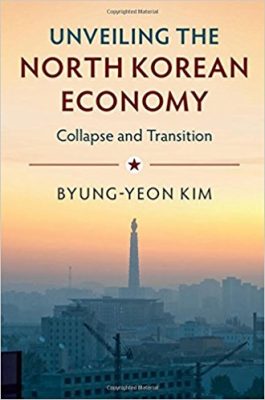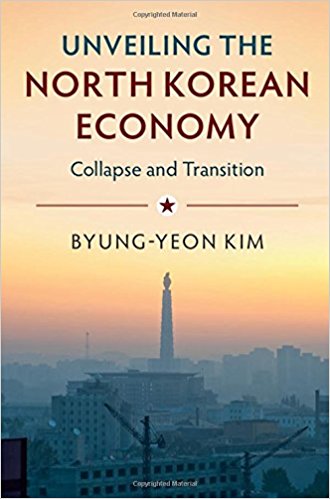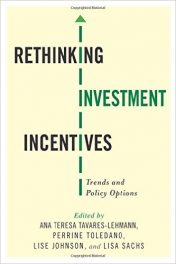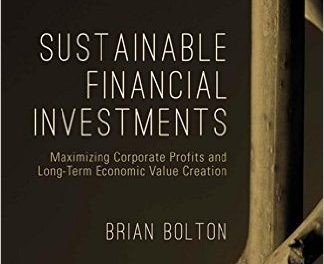 Author: Byung-Yeon Kim
Author: Byung-Yeon Kim
Publisher: Cambridge University Press – 329 pages
Book Review by: Sonu Chandiram
In this book, the author South Korean Professor Byung-Yeon Kim of Seoul National University, writes about North Korea in his Introduction, in a succinct nutshell: “…regardless of scenario, the collapse of the (North Korean) socialist economy and its transition to a market economy appear to be inevitable.”
Recent attention on North Korea has grown much in recent months and weeks, with its supreme leader and absolutely powerful dictator Kim Jong-un firing off a spate of test missiles into the Sea of Japan and over that country. North Korea has sparked a lot of curiosity lately. It had Google hits of 30 million on recent news about it, the author points out. In the same time period South Korea had Google hits of just 13 million.
North Korea is a small nation of just 25 million people in a land area of about 47,000 square miles, and a Gross Domestic Product of a mere $25 billion. Comparatively its neighbor South Korea with twice as many people (51 million) and about a 20 percent smaller land area (around 37,000 square miles) has economic output of $2.03 trillion, which is over 80 times North Korea’s.
What is even more striking in comparing the two countries that were in the past just one or unified, is that the average South Korean earns nearly $40,000 a year (GDP per capita) whereas his northern counterpart has just $1,000 in annual earnings.
The basic difference in economic difference between the two countries is that North Korea has a strictly government-controlled and government-run socialist economy, whereas South Korea has a free, capitalist economy wherein people are responsible for their financial situation.
Byong-Yeon Kim has done a remarkable job of unearthing information about North Korea in a regime that “allows no independent press or free use of the Internet,” as he puts it. Nevertheless, the author was able to painstakingly gather not only information, but also knowledge and insight from 30,000 North Korean refugees living in South Korea, and from other sources.
Byong-Yeon Kim gathered his findings about North Korea and its socialist economy, and organized them in this uniquely revealing book of 14 chapters we list below to provide you an overview. They are sandwiched between a concise Introduction and a Conclusion that the country’s economy was bound to collapse, given the facts. In the process, he made comparisons of North Korea’s socialist economic system with that of the former Soviet Union.
Introduction
- An Evaluation of the Socialist Economy
- Economic Systems
- The Performance of the Socialist Economy
- Households in Socialist Economies
- Firms in Socialist Economies
- Sustainability and Collapse of the Socialist Economy
- The North Korean Economy
- The North Korean Socialist Economic System
- Performance of the North Korean Socialist Economic System
- Households Surviving in Informal Markets
- Firms: Surviving with Markets and Foreign Trade
- Regime Stability in North Korea: Corruption and Markets
- Transition of the North Korean Economy
- An Overview of the Transition Experience
- Macroeconomic Stabilization and Liberalization
- Privatization and Entry of Firms
- Economic Integration with South Korea
Conclusion
Much data is provided throughout this book to clarify and amplify the discussions, and support the points the author makes.
In the Conclusion, Byung-Yeon Kim writes: “What is certain however is that the current status quo (a socialist economy) cannot be maintained in the long term, as long as North Korea (with Kim Jon-un in power) keeps on developing nuclear weapons.”
He asserts: “The best outcome would be for Kim Jong-un himself to transform the economy of North Korea into a market economy and agree to de-nuclearisation.” But that eventuality “is fairly unlikely given that he believes his power would be substantially undermined by the adoption of a market economy, and the giving up of nuclear weapons.”
The author does not rule out a situation that Kim Jon-un is “unwillingly forced to do so.” The North Korean dictator “will consequently have two ultimate choices”
One is to try hold on to his power in a socialist economy using military force. But he will fail in the process of continued repression.
Two is to loosen his tight hold on power and grant autonomy to the economy, just like the ‘Chinese style of transition’. This is the most likely outcome.
This book fills an important gap in our limited knowledge about North Korea, particularly its economy.
Author:
Byung-Yeon Kim is a Professor in the Department of Economics at Seoul National University. He was the recipient of the T.S. Ashton from the Economic History Society of the United Kingdom and the Chungram Award from the Korean Economic Association and has been recognized as a Distinguished Researcher in the Humanities and Social Sciences by the National Research Foundation of the Republic of Korea. He is a regular columnist on North Korean issues in a major South Korean newspaper.







